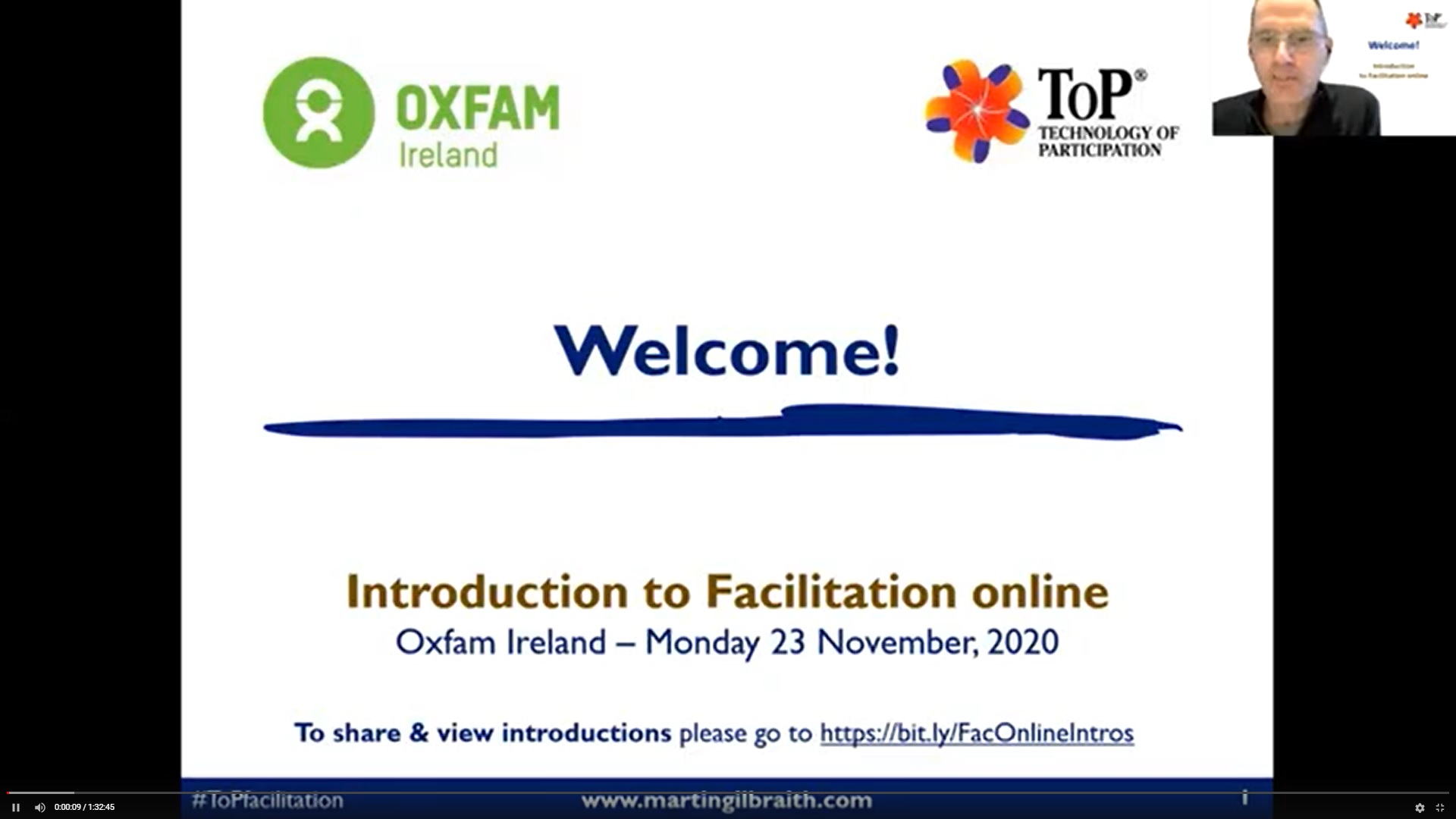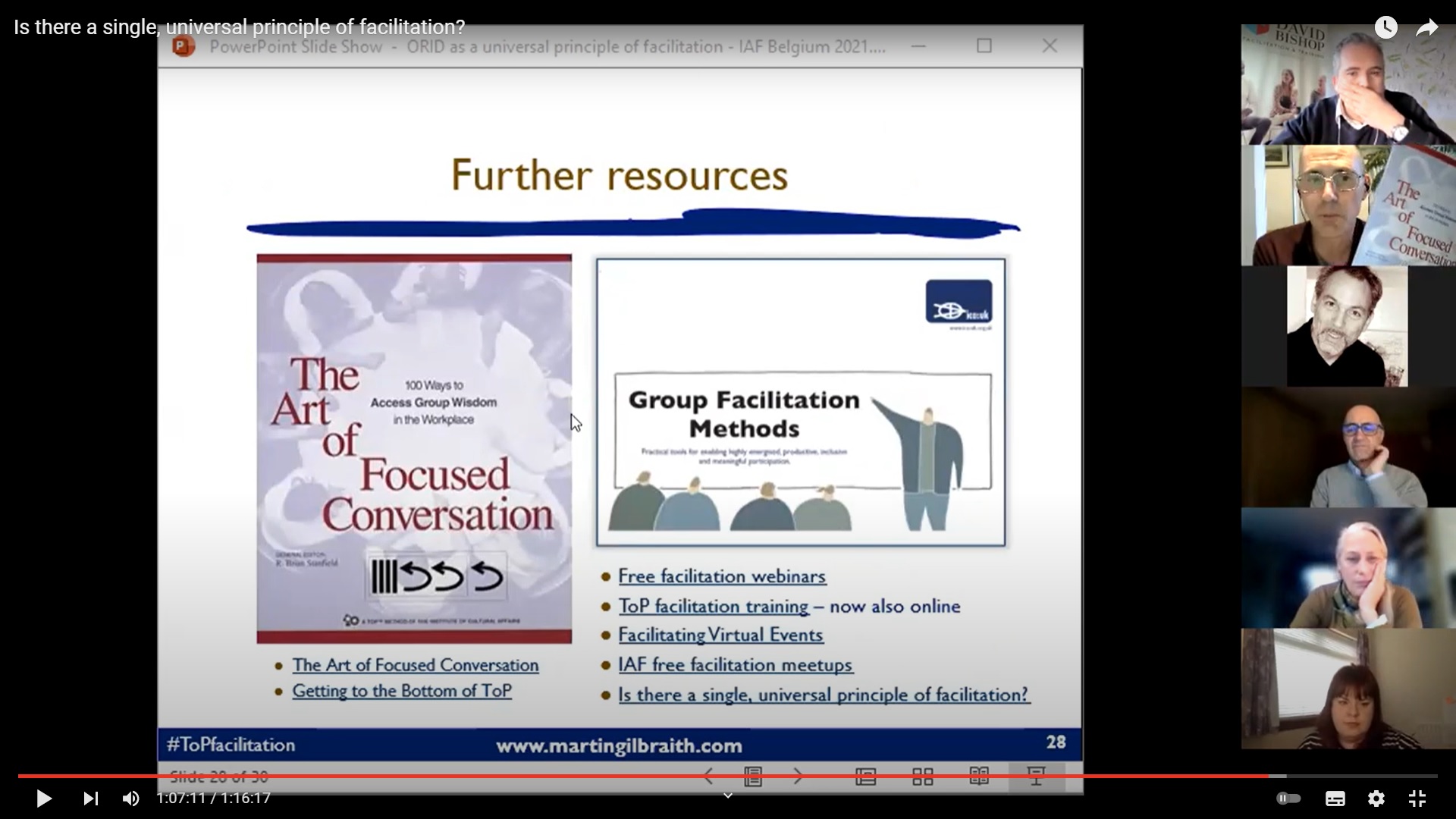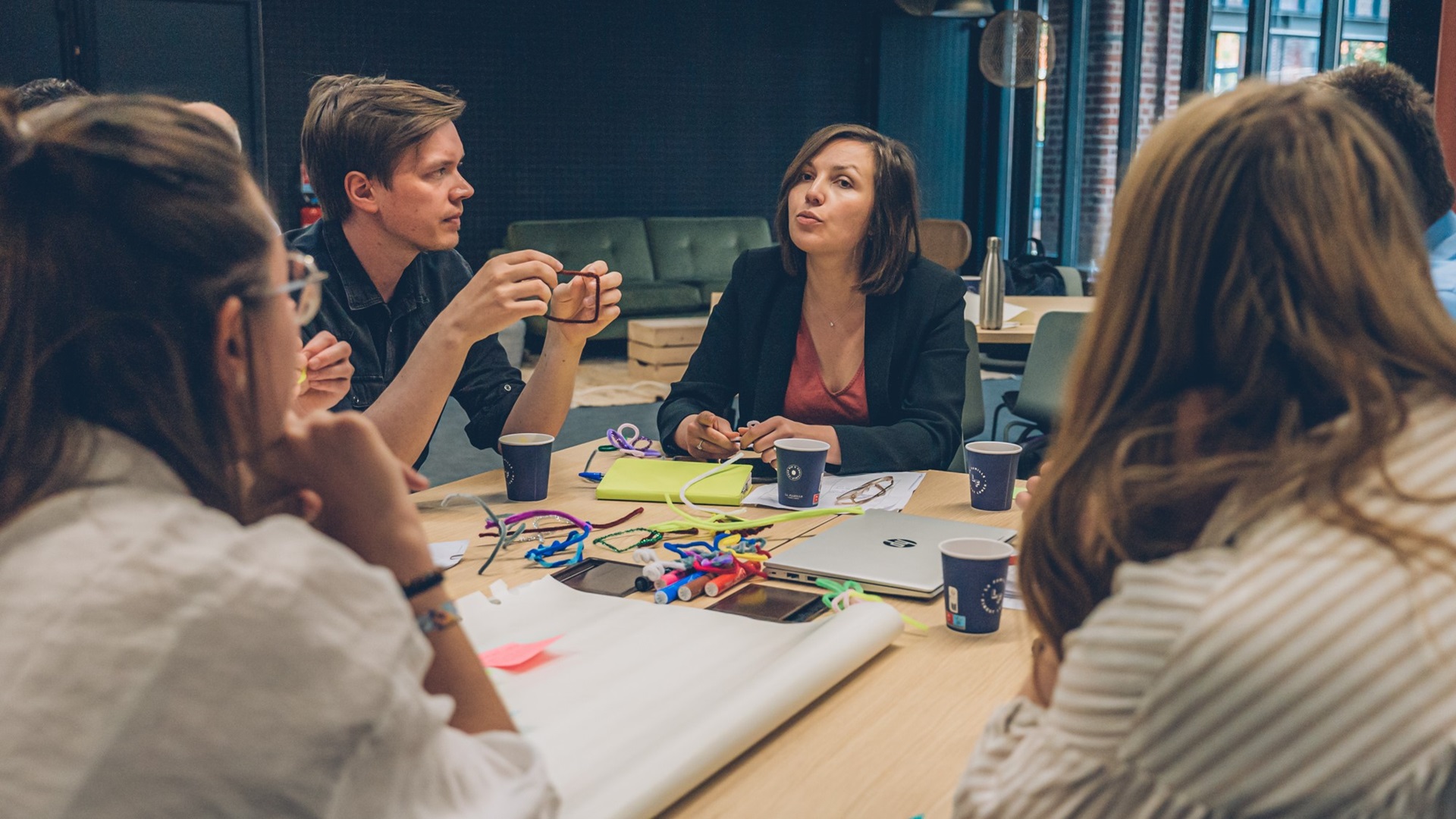
“How can we bring together 90 diverse stakeholders in a series of six online conversations in a day, to tackle complex environmental topics and have strong outputs – avoiding a ‘talking shop’”?
These were among the questions that led NHC Director Savita Wilmott to approach me in December 2021 to design and lead “Beyond COP26: The Conversations”. Savita was familiar with me, and with ICA:UK and ICA’s Technology of Participation (ToP), and knew that ICA’s ToP Focused Conversation method could be part of the answer.
Context
The Natural History Consortium (NHC) is a charitable collaboration of 14 organisations working together on a shared mission: to develop, test and disseminate best practice to engage everyone with the environment and natural world.
Communicate is the UK’s conference for environmental communicators, attracting around 200 attendees to previous in-person events and over 600 to the 2021 online conference ‘Communicate beyond COP26’. ‘The Conversations’ were the final phase of this 3-part online conference, following earlier sessions in June & September 2021.
Six round table Conversations of 90 minutes each were scheduled for one day in January 2022. Each were to have up to 16 different people attending – communication professionals from across the country, invited and/or nominated by NHC members, who may or may not have attended previous sessions in the series.
The overall theme was “What will we learn from COP26, and how will the UK’s environmental communication community translate international declarations into local action, and national programmes?” and in particular ‘has the landscape changed?’ The six Conversation topics were:
- Putting nature at the heart of climate change communication
- Learning from COP26 about better partnerships with young people
- Engaging people with trees, woodlands and deforestation
- Transparency, accountability, and avoiding greenwashing
- Breakthrough communication techniques and campaigns from COP
- From international declarations to local action.
Two people were lined up to give a 5 minute ‘provocation’ at the beginning of each Conversation, and then stay on to participate. Key insights were to be captured and shared with the Communicate community in a series of bite-size reflection papers, audio resources and tool kits.
The Conversations were to be held in Zoom to avoid ‘new platform fatigue’, with the plenary time recorded to support preparation of the ‘insight papers’ by the NHC team but the breakout spaces not recorded in order to encourage candid conversation. The six Conversations will be led separately from each other, however it was felt that it would add value to have a simple asynchronous digital place to which participants from across the conversations can contribute before, during and after the conversations.
Aims
In conversation with Savita, the aims of the Conversations were agreed to be broadly as follows:
- To share learning and expertise about the topic between those present, to cross-fertilize ideas across the environmental communication sector after COP26
- To generate insights that can be shared with the wider sector through NHC’s marketing channels
- For participants to feel like they have had a satisfactory opportunity to share their experiences in a well-structured and safe environment
- For participants to feel connected to the Communicate community, and more likely to engage in future events or be active in the network.
Approach
I had arranged for fellow ICA:UK Associate Megan Evans to work with me as co-facilitator, and with our ICA:UK colleague Alice Blackwell and David Linskey to work with us online session producers. I led three conversations in series with Alice, while Megan led the other three with David.
Our approach was to draw on the methods of ICA’s Technology of Participation (ToP), and the ToP Focused Conversation method in particular. Pioneered and refined by ICA in over 50 years of experience worldwide, ToP is a proven system of methods and tools that can be adapted and applied to help all sorts of groups accomplish a wide variety of tasks together. The core values of the ToP approach, which inform all of my work, are inclusive participation, teamwork and collaboration, individual and group creativity, ownership and action, reflection and learning.

The ToP Focused Conversation method provides a structured, four-level process for effective communication which ensures that everyone in a group has the opportunity to participate.
I proposed that we use this method to structure a series of questions for each conversation, tailored in collaboration with the NHC team to meet the above aims in respect of each topic. For examples of this approach in action we shared the ICA:UK Online Focused Conversation Series 2020 to which Megan, Alice and I had all contributed, and my own Free facilitation webinars.
Tools
For a simple asynchronous digital place to which participants from across the conversations could contribute before, during and after Conversations, I proposed that consider one of the following – depending on whether only brainstorming or also interaction may be helpful (and likely), and on which (if any) may already be familiar to participants:
We agreed to use EasyRetro for its simplicity of use and in order to easily export the data for editing into the insight papers. We agreed to use mentimeter as well for a simple participant feedback survey.
Pre-session communications to participants included:
To make sure that you will be able to join and participate, participants may need to join this Zoom test meeting in advance and then follow any instructions to download and install the Zoom app and configure your settings as necessary – https://zoom.us/test.
Participants will need a stable broadband internet connection with speed of preferably at least 10 Mbps download / upload. You can test yours at www.speedtest.net.
For greater functionality to maximise everyone’s engagement and learning, please use a laptop rather than a phone or tablet and join via the Zoom app not a browser. It is helpful to update your Zoom app to the latest version – see Zoom app upgrade.
Please use your own laptop (one per person), with headphones and a microphone, and join the session on your own from a quiet and well-lit place so that you can be seen and heard without distractions for yourself or others.
To use Easyretro on the same device as Zoom you will need to have a large screen and/or to navigate from one window to another and back again. It is not essential but can be helpful to have a second device or screen, in order to use one for zoom and one for the other tool.
Process
We applied the ToP Focused Conversation method to craft a series of nine ‘ORID’ questions that could be used across all six 90-minute Conversation sessions, for consistency of outputs.
We invited participants to respond to the first three (Objective level) questions in advance of the session in order to familiarise themselves with Easyretro, and then we reviewed and added to those responses at the start of each session. Participants responded to the remaining questions in conversation in small breakout groups, and were able to see the ideas of other groups in EasyRetro as they added their own. That enabled the plenary sessions to focus on discussion rather than reporting.
The three sessions I led started at 9.00, 12.00 and 2.30, and the three led by Megan started at 9.30,12.30 and 3.00. Staggering the start times by half an hour enabled Savita to attend and speak at the opening and closing of all six sessions.
| Agenda |
Discussion questions |
| Opening & overview |
| Introductory conversation, building on responses shared on Easyretro in advance
Objective level questions |
1. Please share something about yourself and your work
2. Is there one thing that you hope to learn or gain from this Conversation?
3. What resources or links can you share on this topic? |
| First breakout groups, followed by plenary feedback & discussion
Reflective level questions |
4. How do you feel that your work or views on environmental communication have been affected by COP26?
5. How do you feel that your organisation or the wider sector is responding to the outcomes of COP26? |
| Break |
|
| Second breakout groups, followed by plenary feedback & discussion – with responses captured in Easyretro
Interpretive & Decisional level questions |
6. What are some ways that the environmental communication sector could work together more effectively on this issue?
7. What are some of the barriers that we still need to tackle?
8. What is a key ‘call to action’ that we can share from this room to the wider Communicate community?
9. What are any issues that need more attention or discussion, perhaps at the upcoming Communicate conference in November 2022? |
| Takeaways & next steps |
| Evaluation & close |
Outputs

The BNHC team wrote up the outputs of the six conversations and published them on their website as an insight paper.
What the participants had to say


Savita Willmott, CEO of the Natural History Consortium, wrote in a recommendation on Jun 24, 2022:
“Martin supported our charity in January 2022 to bring together 90 diverse stakeholders into a series of six online conversations in a single day. We were looking to tackle complex environmental topics, and have strong outputs. His advice and support was invaluable to design an effective programme for the day as well as to expertly facilitate the session alongside another facilitator. We achieved our aim of avoiding a “talking shop” – the outputs of the session are informing our strategic work six months later, and the connections made between organisations are thriving. Martin strikes a brilliant balance between flexibility and attention to detail, and we’d recommend him without hesitation.”
See also about me, how I work, who I work with and recommendations & case studies, and please contact me about how we might work together.
Like this:
Like Loading...













































































